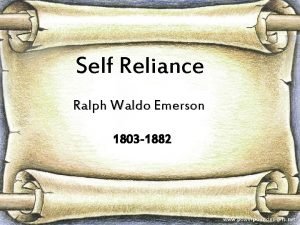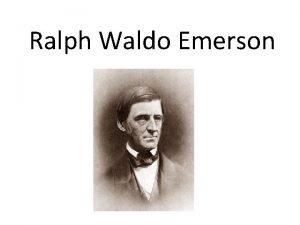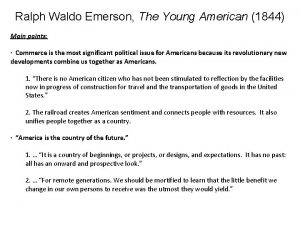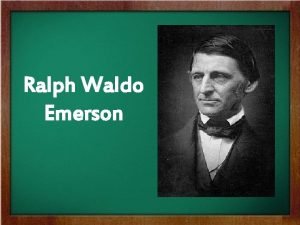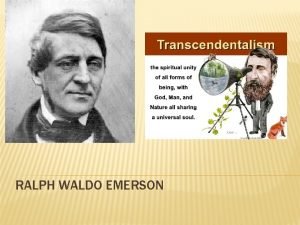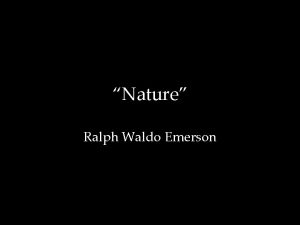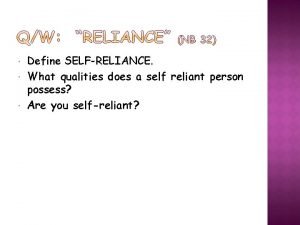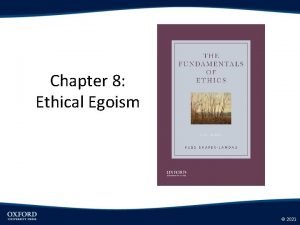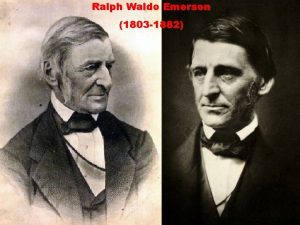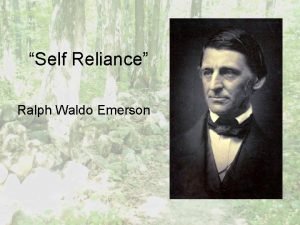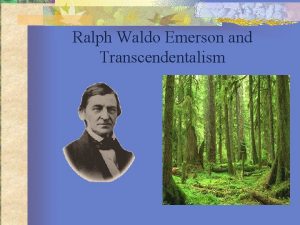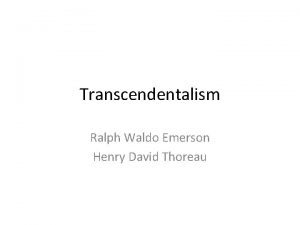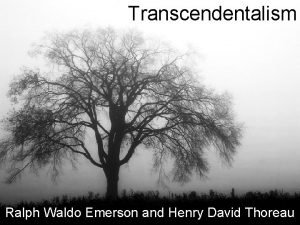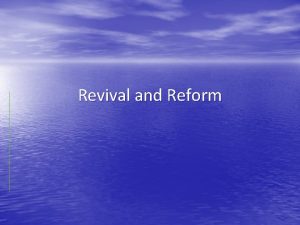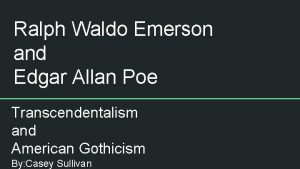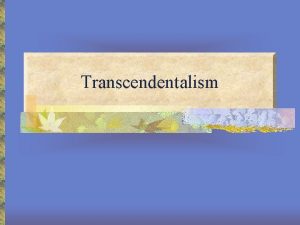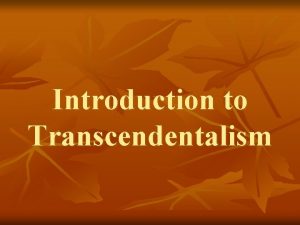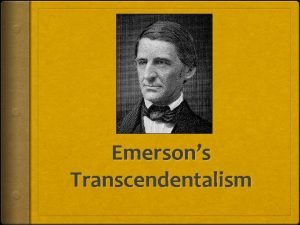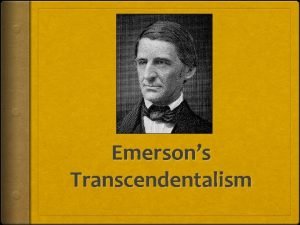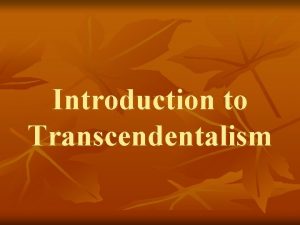TRANSCENDENTALISM Part One Self Reliance Ralph Waldo Emerson

















- Slides: 17

TRANSCENDENTALISM Part One

“Self Reliance” Ralph Waldo Emerson

“Self Reliance” • Each person must ultimately rely on himself or herself. – Nothing good comes from envy or imitating someone else. – A person can only profit from his or her own work – One must accept one’s unique place in the world…

“Self Reliance” • One must have faith that God is working through oneself in a unique way. – One’s own impulses must be honored as if they came from God; following your nature is crucial in order to be a self-reliant individual.

“Self Reliance” • It is easy to live by your own ideas when alone and to conform when you are with others. – A great person refuses to conform even in a crowd. • “ For nonconformity the world whips you with its displeasure. ” (366)

“Self Reliance” • Consistency scares us from trusting ourselves because inconsistency exposes us to criticism from others.

“Civil Disobedience” Henry David Thoreau

“Civil Disobedience” • Thoreau begins by making a strong and potentially radical statement about government. • Government should be a tool for carrying out the will of the people. – It should not be used to abuse power or authority.

“Civil Disobedience” • Thoreau opposes abolishing government immediately; he favors improving government immediately. • For Thoreau, individual conscience is of greater importance than majority rule.

“Civil Disobedience” • Americans were in the midst of fighting a controversial war with Mexico, making Thoreau’s comments greatly divisive. – Argues that people can become “agents of injustice” by upholding morally wrong laws. – Thoreau approves of those who serve with their conscience.

“Civil Disobedience” • Taxes represent the agency of an unfair government. • Truth holds power. – People should not be afraid to stop supporting a government that is unjust. – People should use their whole influence to fight for change.

“Civil Disobedience” • If people experience injustice themselves, it will only make them more effective as protesters. – A jailed person with a clear conscience is freer than someone blindly serving an unjust system.

Walden Henry David Thoreau

Walden • Thoreau begins with a meditation on the place where the first shots of the revolution were fired. – His rebellious and independent spirit is in keeping with the spirit of the American Revolutionaries.

Walden • Thoreau moves to the woods to live simply and deliberately; to experience the essence of life. • Thoreau’s remedy for our hectic, detailcrowded lives is to simplify. – Eliminate unnecessary activities.

Walden • Extended Metaphor: Thoreau likens civilized life to a rough sea. – Every day demands might cause one to overlook the meaning of life.

Walden • Thoreau exaggerates the importance the average person gives to the daily news. • “Penny for your thoughts…” – The offer is never taken literally. – The Penny-post. • Thoreau wants to spend his time figuring out the “secret of things. ”
 Self reliance main points
Self reliance main points Ralph waldo emerson biography
Ralph waldo emerson biography Ralph waldo emerson young
Ralph waldo emerson young Ralph waldo emerson childhood
Ralph waldo emerson childhood Ralph waldo emerson exito
Ralph waldo emerson exito Ralph waldo emerson family
Ralph waldo emerson family Ralph waldo emerson and henry david thoreau
Ralph waldo emerson and henry david thoreau “envy is ignorance, imitation is suicide.”
“envy is ignorance, imitation is suicide.” Ralph waldo emerson introduction
Ralph waldo emerson introduction Define reliant
Define reliant Ethical egoism
Ethical egoism Thoreau self reliance quotes
Thoreau self reliance quotes What is the only law emerson can hold sacred
What is the only law emerson can hold sacred Self reliance criterion
Self reliance criterion What is difference between actual self and ideal self
What is difference between actual self and ideal self Where's waldo photoshopped out
Where's waldo photoshopped out Where waldo google maps coordinates
Where waldo google maps coordinates Waldo vector
Waldo vector
